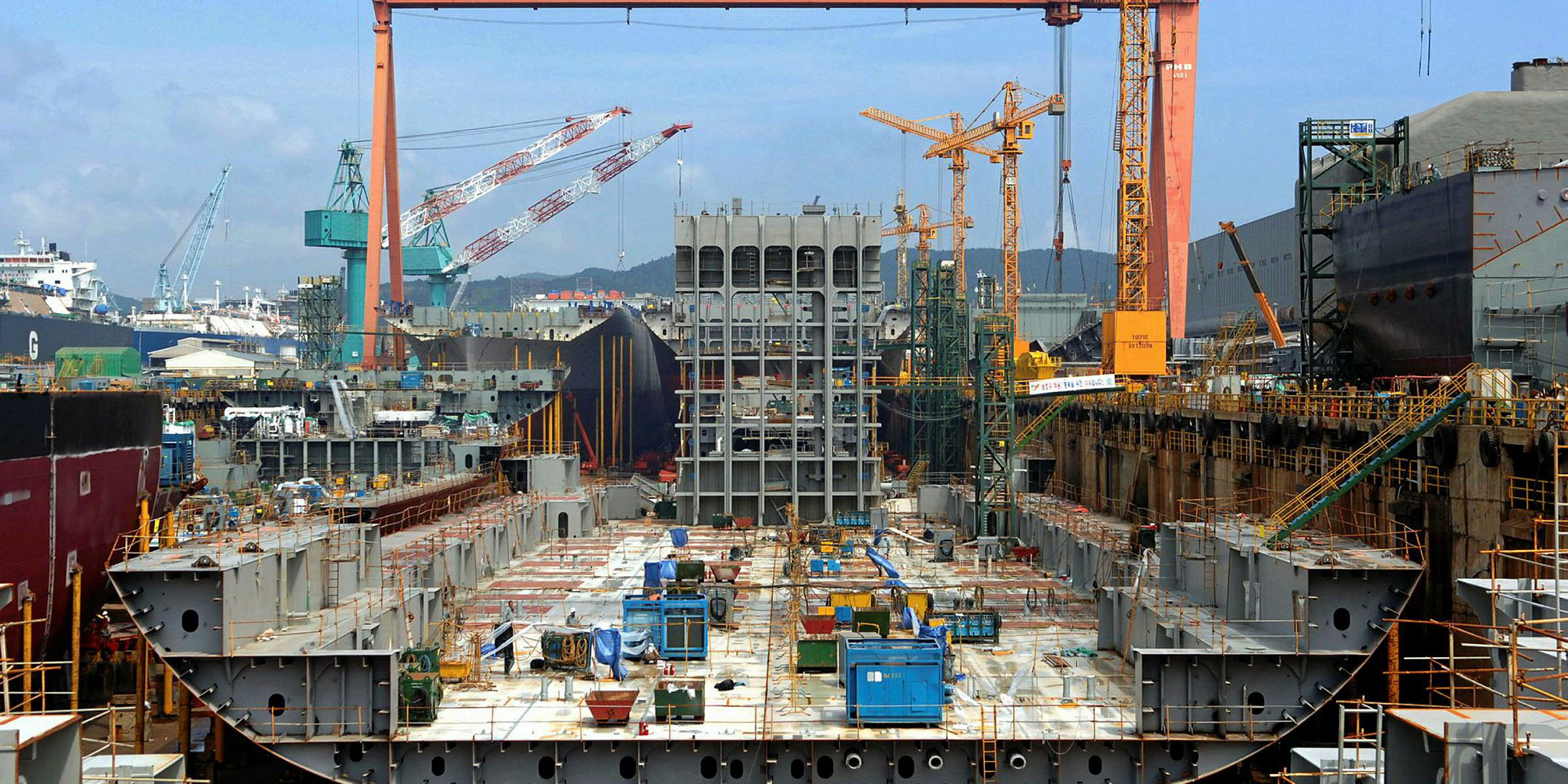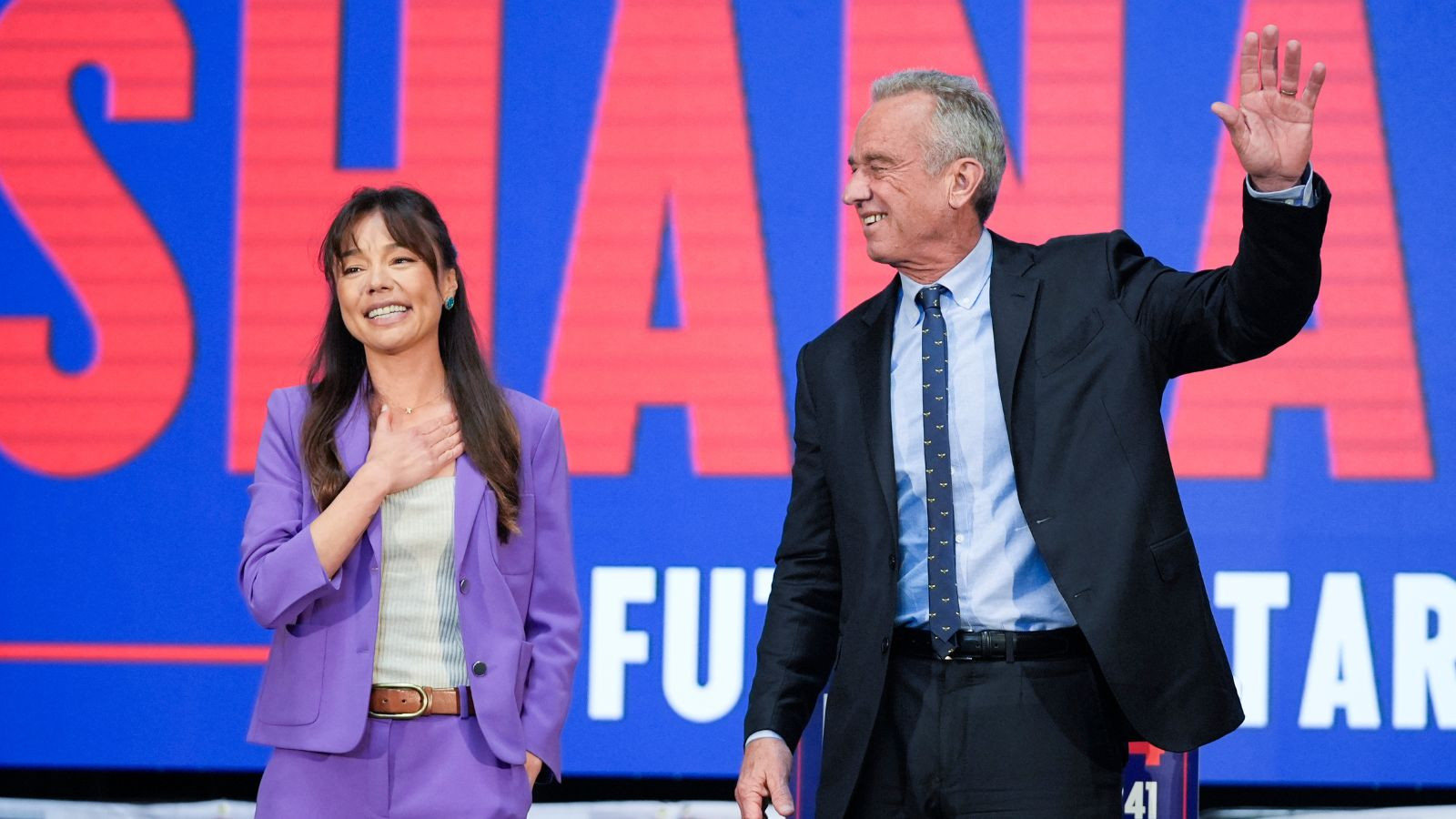Unionised workers at busy shipbuilders in South Korea downed tools today, in a first round of strikes that will likely continue next month. Labour unions, consisting of eight shipyard chapters, launched a two-to-five-hour joint partial strike at yards including HD Hyundai Heavy Industries, HD Hyundai Samho and Hanwha Ocean after failing to reach a wage agreement over pay packages. Other builders, such as HSG Sungdong and K Shipbuilding, are also affected, with the exception of HD Hyundai Mipo, which has not yet obtained the right to strike, HJ Shipbuilding & Construction, as well as Samsung Heavy Industries, which has decided to go on strike but to stage on-site protests initially. The shipbuilders’ unions are demanding an increase in unionists’ basic salaries, a wage peak system, an extension of their retirement ages, and more new hires.
South Korea has had a significant manpower shortage in recent years, exacerbated by increased shipbuilding contracts. The government has been trying to mitigate this by increasing the yearly limit for skilled worker visas and forming training and recruitment agreements with surrounding nations. The country’s three major shipbuilders have accumulated their workloads for the next three to four years and seen their utilisation rates spike, but concerns have been raised that if the strike escalates, it could disrupt production and delay delivery schedules.
Further strikes are planned for September 9, if talks over collective bargaining agreements fail. Labour strikes have previously occurred at South Korean shipyards. In 2022, key labour unions in the shipbuilding sector decided to strike over pay demands and working conditions. The strike was the country’s second significant industrial dispute that year, following a truckers’ strike that halted operations at key industrial sites and ports.
First Warning Strike
In a first for the South Korean shipbuilding industry, union members staged their first coordinated work stoppage today, August 28, to place additional pressure on the industry during ongoing contract negotiations. The brief actions were due to stop work Wednesday afternoon for between three and five hours and were reaching not only the three major shipbuilders but also the yards of several midsized builders. The unions representing the individual yards formed the Shipbuilding Industry Union Solidarity (KTCU) to coordinate the 2024 contract negotiations. Many of them are affiliates of the Korean Metal Workers’ Union, one of the largest in the country.
KMU officials said there have been five rounds of negotiations without an acceptable proposal from the shipbuilders. They are demanding increases in basic salaries, a wage peak system, changes to the bonus system, and raising the retirement age from 60 to 65. Critically, they are also demanding more new hires to address the current shortage of workers and difficult working conditions. The strike comes they point out as the industry has been averaging a utilization rate in 2024 of over 105 percent, the highest in the last five years. The shipbuilders returned to profitability in 2023 and have multi-year backlogs. Reports put the current value of the orderbook for the three largest builders at over $140 billion, with calls from the union to share the profits with members.
Union leaders served notice of the plan to stage the first warning strike during the negotiations in July. Today they reported that the effort was expanded at the largest HD Hyundai Heavy Industries yard in Ulsan to include all workers versus an original plan of just union leaders. Work also stopped at the HD Hyundai Samho yard and Hanwha Ocean. HD Hyundai Mipo members had not yet obtained authorization to strike so only the strike committee participated at the yard while at Samsung Heavy Industry the union set up tent protests.
Similar actions were planned for the midsized builders. Members at both HSG Seongdong Shipbuilding and K Shipbuilding participated in the work stoppage. The efforts ranged from Ulsan to Geoje, Tongyeong, Yeongam, and Busan in a unified show of solidarity among the union branches. Despite having conducted 20 negotiating sessions union leaders said they are committed to continuing the negotiations while demanding concessions from the companies. The union reports members will rally in Ulsan on September 4 and in Geoje on September 9. They said if there was no progress before the Chuseok holiday (September 16 to 18, 2024) they would launch a plan for a “stronger struggle” after the holiday.
Potential Disruption
The shipbuilders have cautioned that any extended work stoppages would risk this year’s scheduled ship deliveries. The union rejects the assertion by the shipbuilders that the actions are potentially harmful to the industry’s reputation and could lower the competitiveness and international credibility of Korean shipbuilding. An extended strike at the then Daewoo Shipbuilding & Marine Engineering shipyard in 2022 contributed to the worsening financial condition of the company. Workers were off the job for 51 days and it participated the sale of the company to Hanwha in 2023.
The Strike's Impact on the Shipbuilding Industry
The Korean shipbuilding industry which has been cruising through a boom period after a long period of losses fears production disruption by the strike. HD Hyundai Heavy Industries unionists will hold a three-hour partial strike from 2 p.m. to 5 p.m. on Aug. 28. HD Hyundai Samho's union will follow suit with a three-and-a-half-hour strike from 1:30 p.m. to 5 p.m. Hanwha Ocean's union will stage a four-hour partial strike in the afternoon. Samsung Heavy Industries has decided to go on strike but will conduct on-site struggles such as sit-in protests at tents on the same day.
The shipbuilders' unions are demanding an increase in unionists’ basic salaries, a wage peak system, an extension of their retirement ages and more new hires. HD HHI unionists’ demands include an increase of 159,800 won (approximately $118) in their basic salary this year, an extension of their retirement age to 65 from current 60, the abolition of the wage peak system, and a change in calculation criteria on performance-based bonuses. In the first half of this year, Korean shipbuilders’ average utilization rate stood at 105.2 percent, the highest in the last five years. In the first half of this year, it exceeded 100 percent, with that of Samsung Heavy Industries at 112 percent and that of Hanwha Ocean at 100.7 percent.
The shipbuilders' order backlogs stand at $74.86 million for Korea Shipbuilding & Offshore Engineering, US$32.9 billion for Samsung Heavy Industries, and $31.8 billion for Hanwha Ocean. The Korean shipbuilding industry is facing a labor shortage compared to its backlog. With several years' worth of work remaining, the partial strike by the labor unions is expected to disrupt production.

















